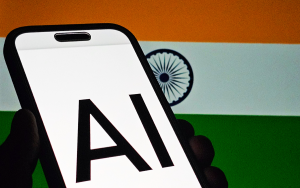We Reside in a World Dominated by Artificial Intelligence

We Live in an AI-First World
The Evolution of Communication in an AI-First World
Communication has long been a fundamental aspect of human existence, shaping relationships, societies, and cultures. However, as we transition into an AI-first world, this essential activity is undergoing significant transformation. The integration of artificial intelligence is not only assisting in communication but is increasingly taking the reins, reshaping how we interact, connect, and convey information.
The Rise of AI-Driven Communication
AI Avatars and Virtual Conversations
In our rapidly evolving digital landscape, we are witnessing the emergence of AI avatars that can participate in video calls as substitutes for their human counterparts. These virtual beings boast realistic voice modulation and facial expressions, providing a convincing simulacrum of human presence. As technology advances, the lines between human and machine communication continue to blur.
Voice Cloning Technology
One of the most remarkable advancements in AI communication is voice-cloning technology. This innovation enables machines to narrate audiobooks, read scripts, and replicate individual speaking styles with astonishing precision. As this technology becomes more accessible, we are likely to see an increase in its applications, from personalized content creation to automated customer service interactions.
Streamlined Messaging Assistants
AI has also revolutionized text-based communication. Email and messaging assistants can now compose messages and respond more fluently and professionally than many individuals can. Whether in personal or business contexts, these tools not only enhance efficiency but also ensure clarity and professionalism in interactions. In some instances, entire conversations are conducted by AI bots, minimizing human involvement.
The Double-Edged Sword of Automation
Increased Efficiency
This shift to AI-driven communication offers exceptional efficiencies. The costs and efforts associated with communication are plummeting, allowing organizations to scale their marketing, advertising, and public relations efforts beyond what was previously conceivable. Campaigns, social media updates, and press releases can now be generated in mere moments, contributing to a more dynamic and responsive communication ecosystem.
The Challenges of Information Overload
However, the automation of communication brings its own set of challenges. As the volume of automated messages skyrockets, the risk of overwhelming recipients becomes palpable. The sheer amount of information can drown out meaningful conversations, making it increasingly difficult for individuals to sift through a sea of noise and find valuable insights.
The Crisis of Trust
Deepfakes and Digital Manipulation
The evolution of AI-driven communication extends to the growing capabilities of deepfakes and voice cloning, which present a pressing risk. As these technologies become more adept, scams and impersonation attempts are likely to proliferate. A simple phone call or video chat can no longer be taken at face value; trust in digital communication is entering a precarious phase.
Navigating a Fragile Landscape
To navigate this shifting landscape, society must develop new tools and norms to ensure the integrity of communication. From verifying identities to discerning authentic content, we will need innovative solutions to maintain trust in an increasingly automated world.
The Future of Jobs in Communication
A Transformation in Career Roles
As AI takes over many aspects of interaction, the job market will inevitably feel the effects. Professions built on communication—such as sales, customer service, marketing, and public relations—are evolving. Roles that once centered on direct interactions may shift toward strategic oversight, narrative guidance, and authenticity verification.
Skills for the AI Era
In this new context, the focus will not primarily be on talking; rather, it will be on understanding how to leverage AI tools effectively. Professionals will need to adapt their skill sets, including data analysis, strategic thinking, and digital literacy, to stay relevant in an AI-driven workplace.
Empowering Human Interaction
Despite the rising role of machines in communication, the human element remains irreplaceable. The ability to empathize, connect, and build relationships is a uniquely human skill that machines cannot replicate. Instead of viewing AI as a competitor, professionals should see it as a tool to enhance their capabilities and facilitate meaningful interactions.
Adapting to a New Reality
Embracing Change
As we navigate this AI-first world, it is crucial to adapt our approaches to communication, both in personal and professional realms. This means embracing AI tools without losing sight of the human elements that make communication rich and impactful.
Cultivating Critical Thinking
In an era where automated messages proliferate, critical thinking skills will become increasingly important. Evaluating sources, questioning the authenticity of content, and applying discernment in communication will be essential for navigating the complexities of an AI-driven environment.
Setting New Standards
It is vital for organizations, educators, and communities to establish new communication standards in light of these advancements. Developing policies around digital communication, including guidelines for transparency and ethics, can help mitigate risks and foster a more trustworthy ecosystem.
Conclusion
In an AI-first world, communication is evolving in ways that challenge traditional norms and practices. AI’s integration into this process presents both extraordinary opportunities and significant challenges. While efficiency and automation streamline many aspects of interaction, they also raise pressing concerns about authenticity and trust.
The key lies not in resisting change but in adapting to it. By embracing AI as a tool and focusing on the irreplaceable human qualities that define our communication, we can navigate this new landscape and cultivate meaningful connections in an increasingly automated world. As we look ahead, the question will not be whether we will continue to communicate, but rather how we will adapt to a reality where talking is optional.
Thanks for reading. Please let us know your thoughts and ideas in the comment section.
Source link | Published Date 2025-08-18 11:26:00
#Live #AIFirst #World







